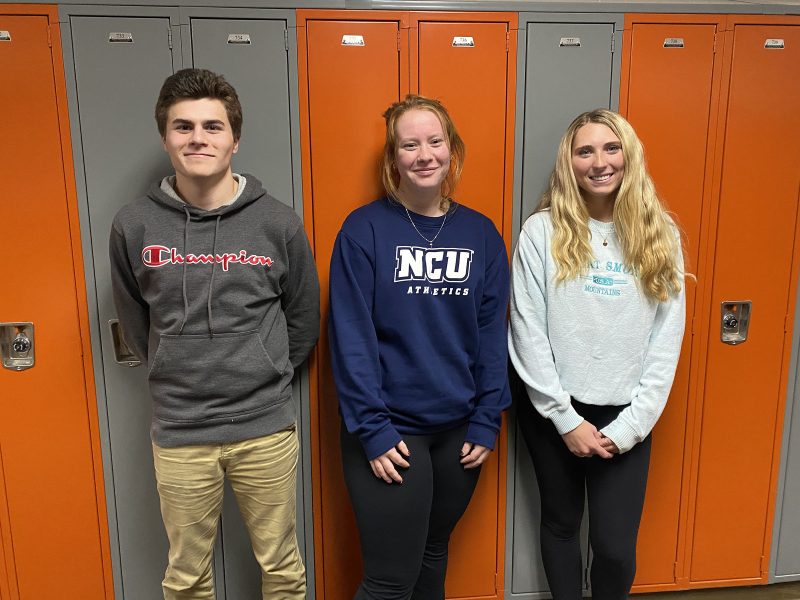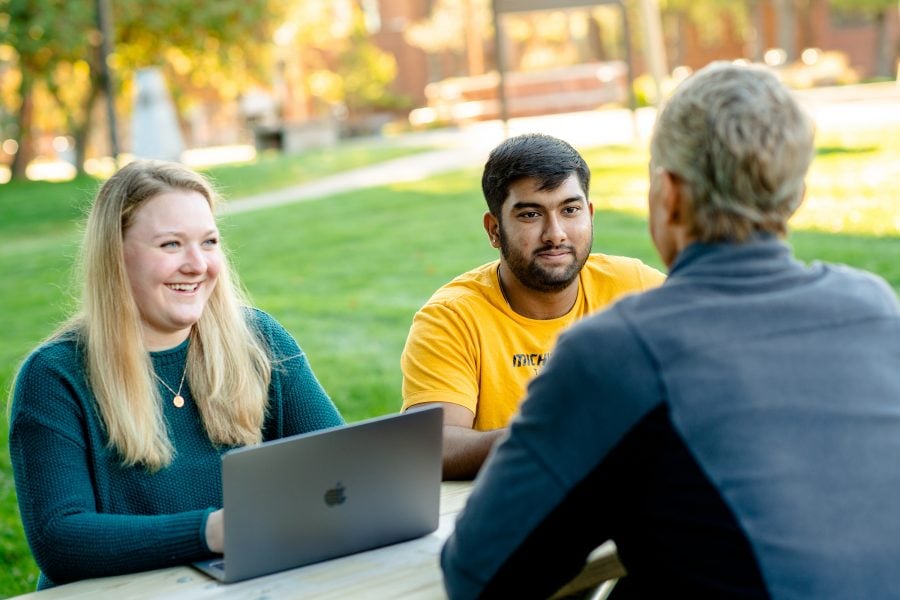
The fall Husky Investment Tournament results are in! Congratulations to the winners, a team of three students from Houghton High School who grew their virtual portfolio by nearly 11%, increasing its value to $1,108,424.82. The students–Nadja Doman, Layla Hilts, and Birk Seagren–were awarded a $1,000 cash prize. All active tournament participants received a one-time $1,000 Michigan Tech scholarship.
The 12th grade students were in a Personal Finance class instructed by Jennifer Rubin. All of the students in the class participated in the tournament. Rubin says she loves the value that the Husky Investment Tournament provides for her students. “It is a great way to expose them into investing and see live-time how the market works!” she said.



